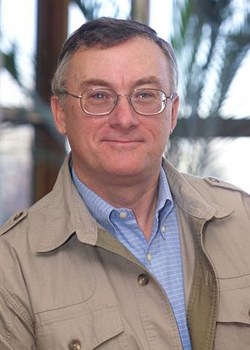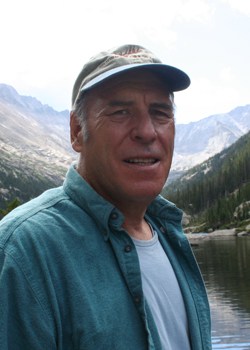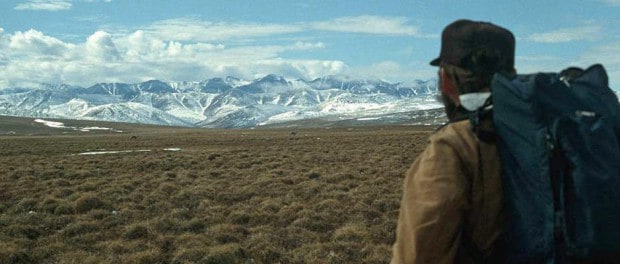Leaving a legacy isn’t optional. We will certainly be remembered – it’s really a question of how.
During your life, you’ve demonstrated your commitment to science-based wildlife management and conservation. By making a gift to The Wildlife Society through your estate, you can make sure your legacy is continued.
Important Note: The information provided on this page does not constitute legal or financial advice. We encourage you to discuss these options with your own advisors before deciding on the best choice for you.
Bequests
One of the reasons bequests are so popular is that you can change your beneficiaries at any time should your circumstances change. No matter which type of bequest you choose, your generosity will have left a lasting legacy. Even a small dollar amount or a percentage as small as 1% can make a significant difference in The Wildlife’ Society’s ability to continue its mission, while still preserving most of your assets for loved ones.
If your entire will does not need updating, a codicil is a simple amendment to a will, which avoids the cost, and complication of re-writing an entire will. The codicil must be signed and witnessed or notarized, just as you did with your original will.
Don’t forget that many assets pass outside your will through the beneficiary designation forms associated with your retirement plans, life insurance policies and bank CDs. As you craft your will, make sure you coordinate the distribution of all of your assets.
Here is language you can take to your advisor if you decide to include The Wildlife Society in your will.
To Give Where the Need is Greatest
“I give, devise and bequeath _____percent of my adjusted gross estate to The Wildlife Society, Bethesda, MD, Tax ID 52-0788976, for its unrestricted use and purpose.” or “I give, devise and bequeath $_____ to The Wildlife Society, Bethesda, MD, Tax ID 52-0788976, for its unrestricted use and purpose.”
To Give to a Specific Program
…such as our Policy or Professional Development Endowment, or Long-range Plan Implementation Fund.
“I give, devise and bequeath _____percent of my estate to The Wildlife Society, Bethesda, MD, Tax ID 52-0788976, to be used for [state purpose].” or “I give, devise and bequeath $_____ to The Wildlife Society, Bethesda, MD, Tax ID 52-0788976, to be used for [state purpose].”
Gifts of Retirement Savings
Since you first started working, you’ve been regularly reminded of the importance of saving for retirement. Now you may find that your retirement savings are more than adequate.
Donating all or part of a retirement plan to The Wildlife Society may be an attractive option that can help you reduce estate taxes and result in a larger overall inheritance for your loved ones. Since TWS is a non-profit charitable institution, we are exempt from paying the taxes that might otherwise be owed by your heirs. This tax-wise move then makes other, less heavily taxed assets you own, available for loved ones.
Making TWS the beneficiary or partial beneficiary of a retirement plan is easy to do. Simply request a Change of Beneficiary form from your advisor, the custodian of your account, or submit your request online to your plan administrator.
Since your beneficiary designations can be changed at any time, you retain the flexibility to do so should your circumstances change.
Gifts of Life Insurance
Many of us have life insurance policies that have long since served their purpose. Perhaps you purchased a policy to make sure your children’s tuition needs were covered, but now they are on their own and doing well. Or perhaps you have a policy your parents purchased for you years ago. These are just two examples of how insurance policies that have outlasted their original purpose can make a wonderful gift to support the wildlife profession.
Here are two ways you can make a gift through a life insurance policy:
- Request a change of beneficiary form from your life insurance company and make The Wildlife Society a full, partial or contingent beneficiary. A gift of life insurance in this way allows you the flexibility to change your mind at any time should circumstances — whatever they may be — dictate such a change.
- Sign over a fully paid policy to TWS. You will be allowed a tax deduction for this generosity.
Gifts of Bank CDs and Other Bank Accounts
One of the simplest ways you can provide for the future of wildlife and the wildlife profession is by making The Wildlife Society the “payable on death” beneficiary of a certificate of deposit or any bank account. This designation gives you the flexibility you might need should your financial situation change in the years to come, while also providing you with an opportunity to make a significant gift if your situation does not change.
Your financial institution can assist you with this easy process.
Meet Two of Our Legacy Society Members
When you make a gift through your estate plan to The Wildlife Society, you enjoy the profound sense of gratification that comes with knowing you are making a lasting difference. And you will also be welcomed to our exclusive Legacy Society, a unique group of people who have made a special commitment to helping ensure that our profession stays strong for future generations.
We encourage you to let us know if you have included us in your estate plan so that we can express our appreciation and welcome you to the Legacy Society. You can let us know by email at tws@wildlife.org or by calling (301) 897-9770.
Two of our Legacy Society members are profiled below to share their stories about why they chose to include TWS in their legacy plans.
Daniel Decker
 “As early as I can remember, I went hunting and fishing with my father and uncle,” says Daniel Decker, speaking about the beginnings of his lifelong commitment to wildlife and the humans who interact with them.
“As early as I can remember, I went hunting and fishing with my father and uncle,” says Daniel Decker, speaking about the beginnings of his lifelong commitment to wildlife and the humans who interact with them.
Decker grew up in ”the country” on the southern edge of the Catskill Region of New York where wildlife was ever present — with the Shawangunk Mountains on one side, a farm on the other, and the Neversink and Delaware Rivers within walking distance of his childhood home. At the age of 17 Decker was elected to represent a local rod and gun club at the Sullivan County Federation of Sportsmen (a county affiliate of the NY State Conservation Council) where he had to be driven to meetings because he was still too young to drive at night.
That youthful love of wildlife was further strengthened when, as a teenager, Decker’s high school physics teacher, who moonlighted as a writer of the environmental column for the regional newspaper, invited Decker to accompany him as he covered stories. Decker was struck then by the ineffectiveness of the public communication process on wildlife and other conservation issues. That realization made an impression — one that would inform his life’s work as one of the foremost scholars in the field of “human dimensions” of wildlife management and policy.
Decker’s path to a career of accomplishment in and on behalf of the wildlife profession was helped each step of the way by The Wildlife Society. His first connection to TWS came in the early 1970s when he sought certification as a wildlife biologist. “I started publishing in TWS journals over 30 years ago, and have continued to do so as an applied academic ever since. About 10 years ago TWS gave my colleagues and I a grant to publish the first textbook on human dimensions of wildlife management,” says Decker.
The revision of that text is currently underway. Over the years, Decker deepened his involvement with TWS, first as an officer in the Northeast Section, then as Northeast Section representative to TWS Council, and later as President of TWS.
“It’s important for me to give back to the profession that has given me so much,” says Decker, speaking of the decision he and his wife have made to make a bequest through their will to The Wildlife Society.
“I want to create opportunities for the next generation of professionals to develop effective leadership skills. The Wildlife Society will face challenges in the years ahead as the impacts of land use and energy development continue to impact wildlife and habitat. Leadership will be the necessary constant. That’s why I’ve made a bequest to TWS—because it’s important to build the leadership capacity for our profession to respond to the challenges of tomorrow and I think TWS is the best organization to do this.”
Len Carpenter
 Growing up as the son of a cattle rancher in Southern Colorado, Len Carpenter always felt a connection to the land and to animals, especially the deer, coyotes, rabbits and waterfowl in the area.
Growing up as the son of a cattle rancher in Southern Colorado, Len Carpenter always felt a connection to the land and to animals, especially the deer, coyotes, rabbits and waterfowl in the area.
“My father wanted me to become a veterinarian but I wasn’t so sure. My connection had always been with wild, rather than domestic animals,” says Carpenter. At Colorado State University, Carpenter made the decision to study wildlife biology that would lead him to a distinguished career as a wildlife biologist.
It was also at CSU that Carpenter began his decades-long association with The Wildlife Society as a member of the Student Chapter. From there, Carpenter volunteered with the Colorado Chapter and the Central Mountains and Plains Section.
Carpenter became presidents of both and after serving as Section President he was elected to TWS Council and, finally after six years on Council he was elected TWS President.
“I always knew there was life beyond Colorado, beyond the 8-5 job,” says Carpenter. “There is a professional calling that goes beyond what you do on a daily basis. The Wildlife Society gave me the opportunity to experience it. Through TWS, doors were opened to me that never would have been otherwise. I met mentors and colleagues who enhanced my work as a wildlife biologist.”
Carpenter credits his efforts with The Wildlife Society in helping him be more effective in his role developing wildlife policy in Colorado and other western states. During his years at the Wildlife Management Institute, Carpenter was a part of a group of conservationists working to ensure that energy developers and livestock grazers on western public lands would take into consideration the impact of their industries on wildlife.
“I think that my presence as a wildlife biologist in those discussions brought attention to issues that might not have been considered otherwise,” Carpenter modestly puts it.
As much as The Wildlife Society has influenced Carpenter’s career, he has given back by leaving an indelible mark on TWS. During his tenure on Council and as President, he worked hard to help create an endowed fund to support policy development. Interest generated on the endowment will help fund TWS’ policy work in perpetuity. And, not content to simply enact the fund, Carpenter and his wife have shown personal leadership by designating a bequest in their will to the endowment.
“TWS is dedicated to improving, enhancing and advancing each individual and the profession as a whole. Giving back to your profession is what TWS stands for. We couldn’t think of a more lasting way to give back than through a bequest.”



